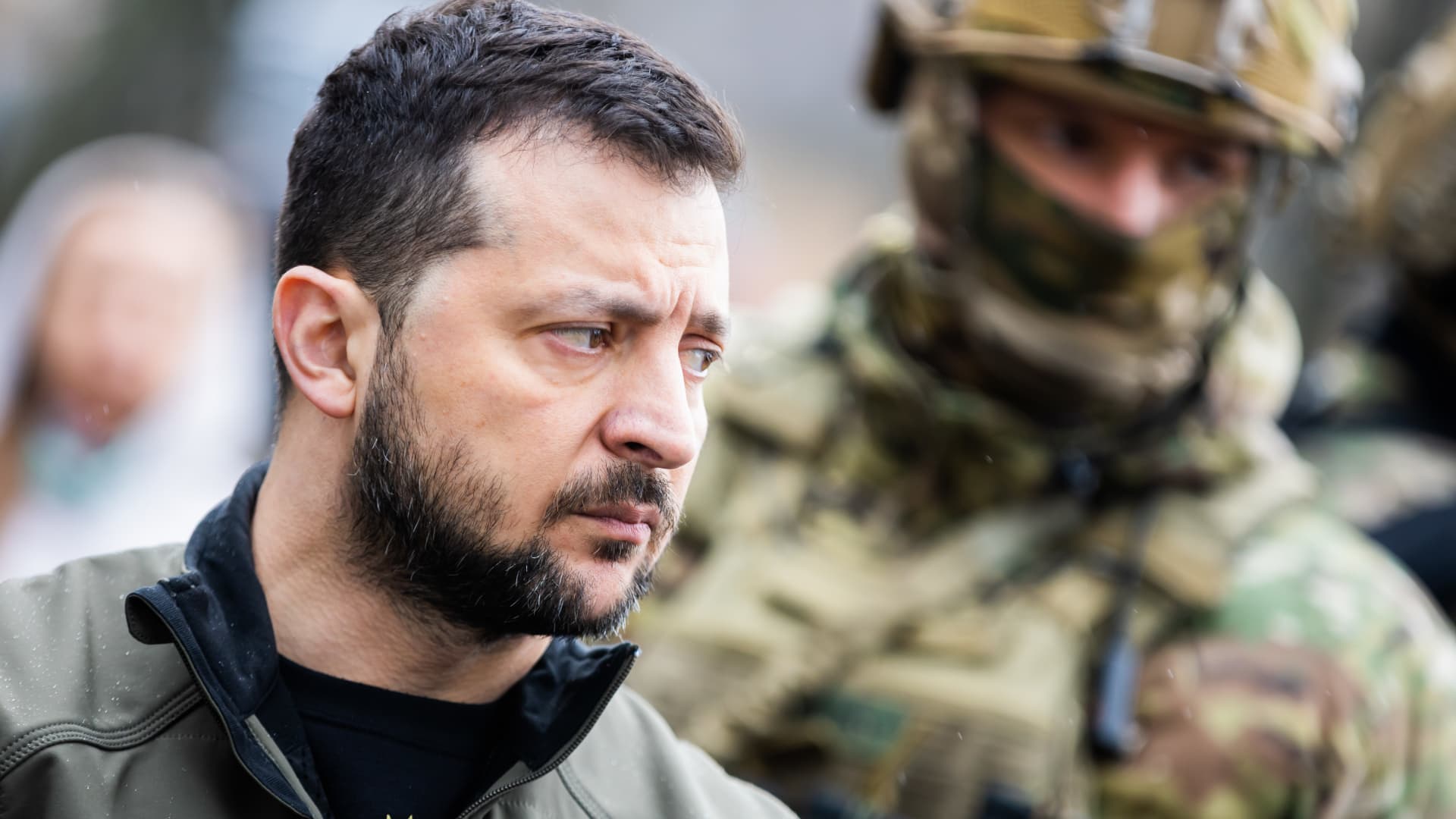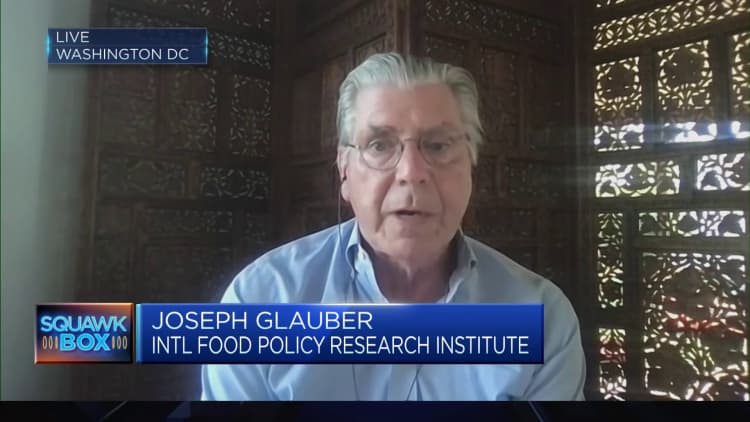Russia watches as Saudi Arabia leads Ukraine peace talks with U.S., world allies


“At night, Russia shelled Mykolaiv with four Kalibr missiles launched from the Black Sea. High-precision weapons were aimed at private houses, a historic building and a high-rise building,” said Ukraine’s President Volodymyr Zelenskyy.
Christoph Soeder | Picture Alliance | Getty Images
WASHINGTON — Ukraine welcomed Saudi Arabia’s decision to host multinational talks this week on Ukrainian President Volodymyr Zelenskyy’s proposed peace plan, a move that could set up future negotiations with Russia.
Andriy Yermak, the head of Zelenskyy’s office, said that Kyiv is working to involve as many countries as possible in the talks, which are slated to take place in Jeddah.
“President Zelenskyy said that our choice is to unite the world around Ukraine. The evidence of this choice is clear: We are engaging countries from the West, East, North and South,” Yermak said during a meeting with Ukrainian officials.
The Wall Street Journal reported over the weekend that the United States, several European countries and Brazil were invited to the talks. Russia was not included in the upcoming meeting.
Riyadh claims it has maintained a neutral stance on the Kremlin’s ongoing war, but Western economies have accused the kingdom of keeping oil prices high, an unfriendly move that allows Moscow to finance its war.
Read more: Saudi energy minister says latest Riyadh-Moscow oil cuts showed unity with Russia
Last year, Saudi Arabia helped broker a prisoner exchange involving more than 200 people between Kyiv and Moscow.
The upcoming meeting in Saudi Arabia comes as the Kremlin’s war marches past its 500th day and amid a stalled Ukrainian counteroffensive aimed at pushing back the frontlines in order to liberate Russian-occupied areas.
Kremlin spokesman Dmitry Peskov told reporters that Moscow plans to “keep an eye on this meeting.”
“Is it possible to reach a peace settlement now with the participation of the Kyiv regime and in the context of its current stance? The answer is unambiguous. No, it is impossible,” Peskov added.









